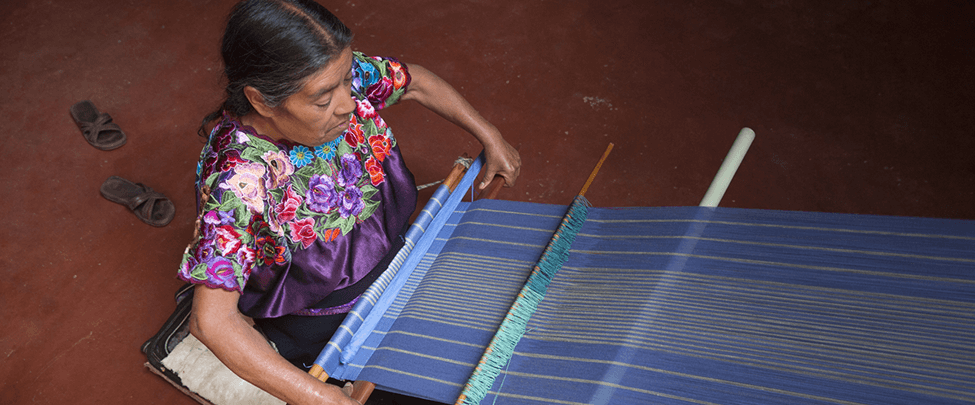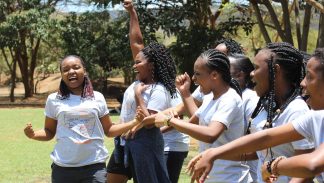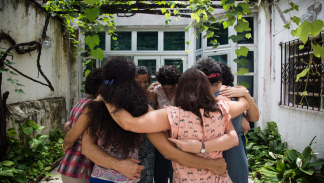Semillas
A few years after founding Global Fund for Women, Anne Firth Murray wanted to carry forward her belief that women’s funds—organizations that work to mobilize more resources for grassroots women’s groups and empower women’s movements—should not exist exclusively within the United States. She was determined for other countries to have women’s grantmaking organizations like Global Fund for Women in order to grow the women’s movement and support a greater number of grassroots women’s organizations.
She approached a group of bold women involved with human rights work in Mexico and invited them to visit Global Fund for Women in order to understand the model of a women’s fund. Shortly after visiting, these women began to conceive the idea of Sociedad Mexicana pro Derechos de la Mujer, now known as Semillas. In 1990, Semillas (which means “seeds” in Spanish) was founded.
“The revolutionary idea Anne had to create women’s funds around the globe began with Semillas, the first women’s fund seeded by Global Fund for Women. Since then Global Fund for Women has supported many others including Tewa in Nepal,” says Emilienne De Leon Aulina, Semillas’ executive director from 2000 to 2009. “But I think one of the things that we have to acknowledge and to thank the Global Fund for Women for is the idea to create other women’s funds outside of the United States.”
Emilienne also explains that, with Global Fund for Women’s support, Semillas was changing more than just the landscape for women’s organizations in Mexico—it was changing philanthropy altogether.
“As Semillas came about, it was very hard to raise funds, and at that time it was worse into countries where there is no culture of giving the way it is in the United States. Philanthropy is part of that culture, while in countries like Mexico and in other parts of the world, this is not the case. There is a culture of giving in Mexican communities, but different from the one in the USA. It is more among families and the church,” explains Emilienne. “There are a lot of charitable organizations, but giving to issues like women’s rights, which is transformational, giving to issues for social change, is not easy for people to understand. There’s a lack of trust in the institutions in many of our societies. So in that sense, Semillas was not only the first women’s fund in the Global South, but it was also the first entity that really began to build a different philanthropy culture in Mexico, not only for women’s rights but also for social issues.”
After seeding its initial founding, Global Fund for Women funded Semillas through its first several years as the organization took root in Mexico and built its own network of donors and supporters. Once Semillas was well-established, Global Fund for Women supported Semillas in other ways, offering organizational advice and support through organizational transitions.
“Semillas was not only the first women’s fund in the Global South, but it was also the first entity that really began to build a different philanthropy culture in Mexico, not only for women’s rights but also for social issues.”
– Emilienne De Leon Aulina
Eventually Global Fund for Women and Semillas, with the leadership of the current Executive Director Laura Garcia, began working together as sister funds to do complementary and strategic grantmaking in the region.
“Worldwide, there are very few organizations like Global Fund for Women who invest in setting up philanthropic institutions in the Global South. This is why Global Fund for Women made a revolutionary step in 1990 by investing in a long-term strategy to help create and sustain Semillas in its founding years,” explains Laura Garcia. “Twenty-five years later, Semillas stands as one of the strongest grantmaking institutions in Mexico, supported by more than 15 institutional donors yearly and 400 individual donors. Throughout its history, Semillas has proven to be a trailblazer in the women’s movement in Mexico. It has financed emerging organizations, of which some are today leading women’s rights organizations in the country.
“Many of the grants that Semillas provides are first grants to the women’s organizations, so Semillas is repeating what Global Fund for Women did 25 years ago: it is investing in new philanthropic and social strategies,” Laura Garcia continued. “This virtuous circle is still gaining strength today and proving that the support given more than two decades ago was visionary, bold, and strategic.”

Q&A: Emilienne De Leon Aulina
Did Global Fund for Women help Semillas in ways besides financial support?
It was critical that Global Fund for Women opened the spaces in terms of supporting Semillas to come to conferences in the United States. We were able to learn from other women’s funds like Women’s Funding Network. I came from a Mexican environment, which is very different, so I learned a lot. Global Fund for Women grants to support travelling and learning in these spaces is unique.
What do you think is the value of an organization like Global Fund for Women?
I would say bringing so many diverse people to the table that understand what women’s rights are about, bringing evidence on how they have been successful with supporting so many grantees all over the world, being the largest women’s fund at the international level, supporting in more than 170 countries. That’s really something! And being part of a community of women’s funds. Being the one who created many of those that are existing now. It’s a very important thing to understand about Global Fund for Women, to really say, “Well thank you very much, Global Fund for Women!”
[Photos credit: Mark Tuschman. Courtesy of Semillas.]
Fast Facts
- Global Fund for Women gave Semillas its first grant to create the first women’s fund in Mexico and the Global South
- Semillas has helped more than 613,000 women and children throughout Mexico and has indirectly benefited over 2.2 million people
- Semillas gave $500,000 in its first 10 years to women’s grassroots organizations in Mexico
Since [the first grant], Global Fund for Women became my ally, and since then until today, they are beside me and they are helping me. Every time that I request something, they answered me. We built this relationship with Global Fund for Women that is like a sisterhood.”Dr. Sakena Yacoobi


